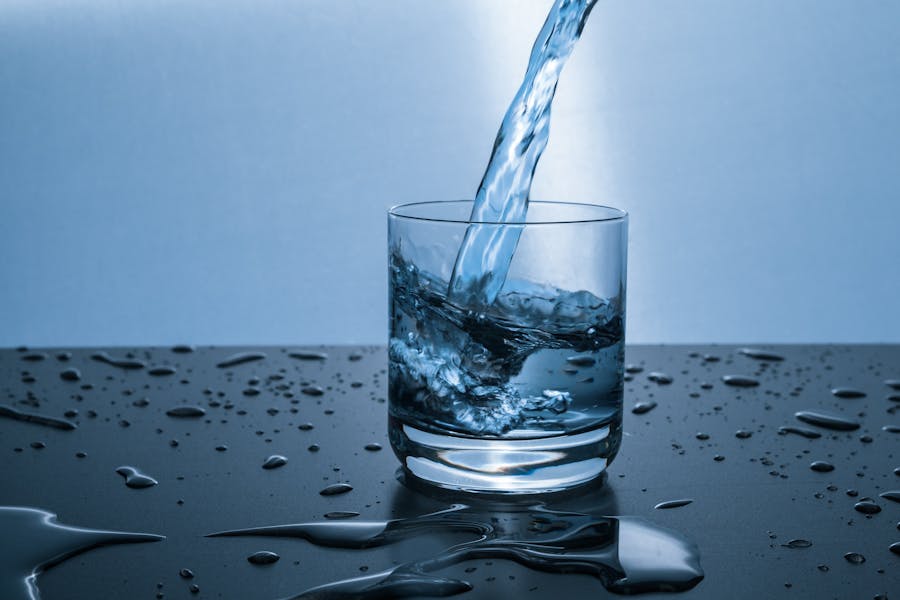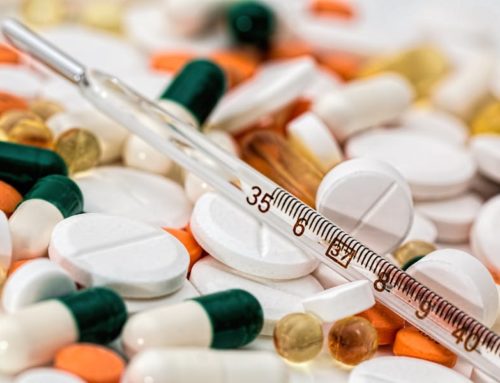Constipation, headaches, and fatigue could all be signs of dehydration. All too often, hydration is an afterthought when it comes to health issues. In the journey towards optimal health, getting plenty of water should be at the top of your list. After all, water is needed for good brain function, circulation, digestion, and other vital bodily functions. (1)
Moreover, proper hydration helps ensure the body has the energy and fluid it needs to optimize detox. This includes detoxification and drainage via the liver, kidneys, and colon. Since water is essential in removing toxins that are hindering the body towards a healthier state, hydration should be a number one priority when it comes to any detoxing protocol
Water in the Body
With water making up about 60% of body weight, water is found everywhere in the body — even in bones. The majority of this water is inside the cells and the rest surrounds the cells or makes up the plasma. (2, 3)
All this water is in your body for a reason because proper hydration enables their whole body to work more efficiently.
Among its many essential functions, water: (2)
- Acts as a shock absorber in the body
- Carries nutrients from digestion around the body
- Flushes waste products and toxins out of the body
- Lubricates the joints and mucous membranes
- Plays critical roles in cellular energy production and use
- Regulates body temperature
- Serves as the place where all chemical reactions needed for life occur
Hydration and the Mitochondria
The energy produced by the mitochondria, the biological “batteries” of the cells, drives the chemical reactions needed for essential life functions.
As you know, mitochondria generate chemical energy in the form of adenosine triphosphate (ATP), which the body needs to: (4)
- Break down food and distribute nutrients
- Eliminate waste products and toxins
- Maintain membrane pumps needed for transporting nutrients and electrical signaling
- Perform physical and mental work
- Regulate hormone secretions that direct growth, development, and repair
All this happens in water and with water.
ATP in water
The ATP molecules become hydrated during the process of making energy in the watery spaces of the mitochondria. (5)
However, hydration of ATP is not quite the same as being hydrated when an individual drinks enough water. Water surrounds ATP in a precise orientation that stabilizes it and keeps it dissolved. It’s only when ATP is dissolved in water that it can be used for energy. (6)
ATP with water
Water molecules also react with ATP to free energy stored in its chemical bonds. Then the cells use it for optimal bodily functions. In this chemical reaction, the water splits ATP apart. Ironically, one of the byproducts of this process is metabolic water. From a chemical standpoint, metabolic water is like the water people drink. It’s made of two atoms of hydrogen and one atom of oxygen: H2O. (7)
But, unlike the water that comes out of the faucet, metabolic water doesn’t contain contaminants. It’s pure. This pristine water supports the optimal functioning of the mitochondria and has far-reaching benefits in the body. (8)
Health Benefits of Hydration
Stay hydrated — especially during a detox — here are some health benefits that you can go over with them to help them visualize how water optimizes overall healthy body function.
Hydration supports the digestive system
Water supports the functioning of the digestive tract from start to finish.
Chewing helps mix the food with saliva. While mostly water, the saliva also contains enzymes that start the breakdown process of carbohydrates and helps with swallowing. (9)
After swallowing, watery fluids transport the food through the gut. The fluid also promotes the mixing of food with digestive enzymes, as well as the absorption of digested nutrients.
The fluids the body produces to facilitate digestion include about 118 ounces of gastric (stomach) juices and 20 ounces of bile daily, and water is a key component of these secretions. (10, 11)
At the end of the digestive tract, water traveling through the gut is reabsorbed in the colon. With diarrhea, it means the movement of the gut contents was too swift and not enough water was reabsorbed. On the other hand, inadequate water intake can lead to constipation. (1)
Keep up your water intake throughout the day may help them avoid sluggish elimination. Being regular will also help keep the drainage pathways open for the body to detoxify naturally.
Hydration supports the kidneys
Many people take their kidneys for granted since their function happens automatically. However, these bean-shaped organs help to regulate the fluid balance in the body and play a vital role in detoxification.
Over a million tiny filters in these organs are responsible for removing metabolic waste products and toxins from the blood, which is later eliminated via urine. (12)
The kidneys filter about 50 gallons (200 liters) of fluid every day, and all the blood goes through the kidneys about 60 times a day. But, the kidneys can’t perform this vital function without plenty of water. (13, 14)
If the kidneys receive a hormonal signal that water intake is low, they stop excreting much of it. In effect, they conserve water needed for essential life functions instead, which causes the urine to become more concentrated. As a result, it may appear dark yellow — like apple juice. (15)
Besides supporting kidney filtration, optimal water intake helps protect the urinary system against disease. This includes safeguarding against chronic kidney disease, kidney stones, and urinary tract infections, and (9, 16, 17)
Hydration supports the liver
As the major detox organ, the liver has a vital role to play by deactivating toxins carried by the blood. Good hydration supports the liver’s detoxification function because the blood is more than half water. About 1 quart (800–1200 ml) of blood cycles through the liver every minute for filtration. (18, 19)
Additionally, adequate water supports the secretion of bile, and in turn, good bile flow may reduce the chance of gallstones. (9, 20)
Moreover, hydration supports detoxification via the bile. The liver releases toxins into bile. In turn, bile is secreted into the gut. Some of this bile is bound by dietary fiber that is then excreted via elimination. (21)
Hydration supports other organs and systems
Proper hydration also supports the brain, cardiovascular system, lungs, and skin. A person’s hydration status may even impact their sensation of pain:
- Brain — Inadequate hydration may undermine brain function. Even mild dehydration may impair attention span, short-term memory, and thinking. Poor hydration may also promote headaches, including migraines. (22, 23)
- Circulatory system — If individuals get dizzy or feel faint when moving from sitting to standing, good hydration may help. Also, if these individuals are prone to fainting, it could help to drink plenty of water before extensive standing and hot weather. (24)
- Lungs — Even though oxygen is vital to the body, when people breathe to get oxygen, water is lost. During intense physical activity, people may lose water around four times faster than when they’re at rest. (25)
- Pain — Good hydration may help lessen pain. This has been shown in competitive athletes, where the dehydrated athletes had greater fatigue and pain than the euhydrated participants. Studies also suggest that good hydration may also reduce pain related to certain diseases. (26, 27, 28)
- Skin — Human studies suggest good hydration supports healthy skin. This includes promoting soft, smooth skin, especially if someone’s skin is normally dry and rough. (29)
Amount of Water for Optimum Health
Adults lose an average of 10 glasses of water (80 ounces) daily via stools, sweat, and urine — all routes for drainage and eliminating toxins. (30)
Conventional wisdom recommends eight glasses of water a day to replace the water lost daily. However, scientists now believe this amount depends on many factors unique to the individual. These include body size, health condition, and activity level. Environmental aspects like the climate and altitude are important considerations, too. (31)
Experts provide the following general daily water intake recommendations: (32, 33)
- Women: 60–75 ounces (7.5–9 glasses)
- Men: 88–100 ounces (11–12.5 glasses)
Keep in mind, these broad ranges are considered “adequate” intake. What’s optimal for someone is uncertain and will vary with individual factors. At any rate, no one should worry much about exceeding these guidelines. Overhydration isn’t a common problem, though it has been observed in some athletes.
Certain diuretics and antidepressants may also affect water balance and electrolytes. (34)
Make sure to consult with you to ensure how much water is best to drink according to their individual needs.
Water Balance and Electrolytes
Being well-hydrated requires much more than just getting the recommended daily intake of water. It’s also essential that the body maintain electrolytes in the right proportions in all bodily fluids.
As you know, the body contains several different electrolytes, and the amounts of sodium and potassium are the most important. For the body to function normally, electrolytes must be present in carefully controlled amounts inside or outside the cells. (35)
The regulatory mechanism to keep the electrolytes balanced is stringent. Even a tiny change of a few ounces from normal levels sets off hormonal messages to the kidneys to either conserve or excrete fluid. (1)
If you are consuming enough liquids and a healthy diet loaded with vegetables and fruits, keeping their electrolyte levels on point shouldn’t be a problem. But note that if they have severe vomiting and diarrhea, they may need supplemental electrolytes and fluids.
Dehydration
Not having sufficient water that leads to dehydration is potentially lethal. While you may not encounter severe dehydration, they should still be alert to milder states of dehydration. Over the long term, this is linked with increased risk of illness, like kidney disease. (1, 9, 36)
Watch for signs of dehydration, including: (37, 38)
- Dry skin
- Headache
- Light-headedness
- Moodiness or irritability
- Thirst and dry mouth
- Unusual fatigue
In dehydration, the brain temporarily shrinks in size, too, until properly rehydrated. In one study, brain tissue fluid decreased by 1.63% on average when dehydrated. (39)
5 Hydration Tips During Detox
You may have heard that thirst isn’t always a good indicator of whether someone needs to hydrate. This is true. As a person ages, the thirst trigger to consume more fluids diminishes. (1)
Moreover, it can be easy for individuals to fall behind on their fluid intake if they are really busy or sweating a lot in the summer heat. This is especially true if you are going through any detox protocols.
The solution to drinking more water sounds simple. But many people get bored drinking just plain water. Here are five tips that can help keep you well-hydrated and assist in any detoxing efforts they are pursuing.
1. Fruit-infused water
There is no need to doctor up water with sugar and artificial flavors to make it more palatable. Instead, add natural flavorings, such as lemon wedges, to brighten up the taste of their water.
They can also mash up a few berries or other small amounts of fruit to infuse in the water. To really enhance the flavors, they can refrigerate it for at least two hours and strain before drinking, if desired.
Kiwi slices, orange wedges, peach slices, sweet cherries, or whatever fruit is on hand works as well. They can even try flavor combinations, like pineapple with mango or blueberries with lemon, too. The added nutrients from fruit will also aid as natural anti-inflammatories as you go through a cleanse or a detox. (40)
2. Herbal tea
Beverages flavored with herbs help hydrate. What’s more, they contain natural phytochemicals that may provide health benefits. For example, peppermint tea has long been used to soothe digestive distress. It also contains beneficial phytochemicals called flavonoids. (41)
Animal research suggests peppermint’s flavonoids may calm the activity of your mast cells. Overactivity of these immune system cells may promote leaky gut and irritable bowel syndrome. (42, 43)
You can also enjoy an herb-based “coffee.” Some Ayurvedic herbal coffee substitutes include coffee senna, also known as fedegoso. This herb has anti-parasitic and liver-supportive properties. (44, 45, 46)
Make herbal teas ahead of time and refrigerate them for a cold drink in the summer. Enjoy them hot in the winter.
3. Coconut water
“Noelani” is the Hawaiian name for coconut and means “dew from the heavens.” This hints at the fluid and nutrient-rich composition of coconuts.
Coconut water is rich in electrolytes — particularly potassium. Several studies have explored the beverage’s potential benefits beyond hydration. (47)
Drinking about two quarts of coconut water every day may help prevent kidney stone formation better than tap water, according to a preliminary human study. Whether smaller amounts would significantly help protect against kidney stones hasn’t been tested. (47)
Animal studies also suggest coconut water helps combat depression. This may be because the coconut water impacted the neurotransmitters. (48)
You can buy coconut water in most stores. Just be sure that you choose unsweetened versions if they choose to hydrate with this liquid.
4. Fruits and vegetables
The eight glasses or so of water that people are advised to get daily doesn’t have to come entirely from beverages. Some come from solid foods.
About 20% of the water people consume is in the foods we all eat, especially fruits and vegetables. (1)
Fruits and vegetables contain as much as 96% water by weight. This varies with the specific produce items, but most are high in water. (49)
Examples of water-rich options include broccoli, cucumbers, oranges, peaches, salad greens, and strawberries. Even avocados, which may seem rather solid, are 73% water by weight. (49, 50)
5. Broth and soup
Homemade broths and soups are another delicious way to bump up fluid intake. Not only does the liquid in soup support hydration, but so do the water-rich veggies in it — like carrots, celery, and onions.
Furthermore, a broth by boiling the bones from grass-fed cattle or organic chicken will contain the added benefit of collagen. An animal study found that the collagen in bone broth helped protect the gut lining. (51)
Additionally, a lab study suggests that collagen helps prevent increased intestinal permeability. (52)
Hydration Matters
Water takes the prize for being the unsung hero in the journey toward robust health.
Hydrating sufficiently is critical for the body to perform a large number of essential life functions.
These include many actions necessary for detoxification, namely:
- Producing and using cellular energy
- Filtering and detoxifying wastes via the liver and kidneys
- Eliminating toxins via stools, sweat, and urine
Besides drinking plain water, fluids like herbal tea and bone broth also count toward a daily intake quota. Whole vegetables and fruits make significant water contributions, too.
All in all, when it comes to a detoxing protocol, the best thing for individuals to do is keep hydrated. The toxins have to be flushed out of the body through open drainage pathways in order for healing and recovery to take place. While a simple solution, drinking water may be the difference for a successful recovery.







